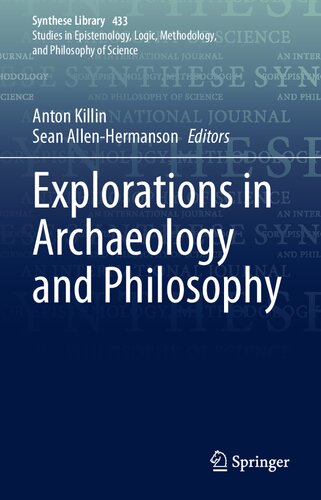

Most ebook files are in PDF format, so you can easily read them using various software such as Foxit Reader or directly on the Google Chrome browser.
Some ebook files are released by publishers in other formats such as .awz, .mobi, .epub, .fb2, etc. You may need to install specific software to read these formats on mobile/PC, such as Calibre.
Please read the tutorial at this link: https://ebookbell.com/faq
We offer FREE conversion to the popular formats you request; however, this may take some time. Therefore, right after payment, please email us, and we will try to provide the service as quickly as possible.
For some exceptional file formats or broken links (if any), please refrain from opening any disputes. Instead, email us first, and we will try to assist within a maximum of 6 hours.
EbookBell Team

0.0
0 reviewsThis volume explores various themes at the intersection of archaeology and philosophy: inference and theory; interdisciplinary connections; cognition, language and normativity; and ethical issues. Showcasing this heterogeneity, its scope ranges from the method of analogical inference to the evolution of the human mind; from conceptual issues in assessing the health of past populations to the ethics of cultural heritage tourism. It probes the archaeological record for evidence of numeracy, curiosity and creativity, and social complexity. Its contributors comprise an interdisciplinary cluster of philosophers, archaeologists, anthropologists, and psychologists, from a variety of career stages, of whom many are leading experts in their fields.
Chapter 3 is available open access under a Creative Commons Attribution 4.0 International License via link.springer.com.